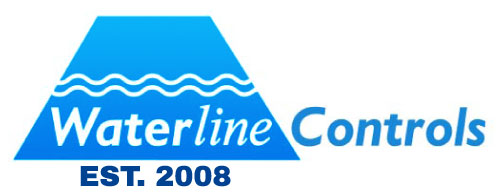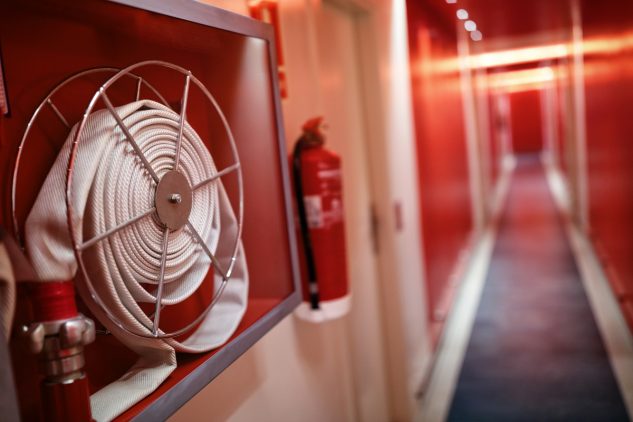Are Sprinklers Worth It?
Installing sprinkler systems is generally considered worth it for several reasons, particularly in commercial buildings where fire safety, property protection, and compliance with regulations are paramount. Below are some key benefits that demonstrate why sprinkler systems are a valuable investment:
1. Improved Fire Safety
- Quick Response: Sprinkler systems activate automatically in response to heat, allowing them to control or suppress fires before they grow large. This quick response time significantly improves safety for building occupants by reducing the spread of fire and providing more time for evacuation.
- Life-Saving Potential: According to the National Fire Protection Association (NFPA), the risk of death in a fire is significantly reduced in buildings with sprinkler systems. Sprinklers help contain fires early, limiting exposure to smoke, heat, and toxic gases.
2. Reduced Property Damage
- Containment of Fire Damage: Sprinklers limit the spread of fires, meaning that only the affected area is exposed to water, heat, and smoke. This containment drastically reduces the damage to property, machinery, equipment, and building infrastructure.
- Lower Repair and Recovery Costs: By limiting fire damage, businesses can reduce the costs associated with repairs, lost inventory, and downtime. In many cases, a sprinkler system will result in only localized damage, which can be cleaned up or repaired quickly, enabling a faster return to normal operations.
3. Compliance with Fire Codes and Insurance Requirements
- Legal Compliance: Many local building codes and fire safety regulations mandate the installation of sprinkler systems in commercial properties, especially for larger or higher-risk buildings. Failing to comply with these regulations can result in fines, penalties, and even the closure of the business.
- Lower Insurance Premiums: Insurance companies often offer lower premiums for commercial buildings equipped with sprinkler systems. This is because the presence of a sprinkler system reduces the overall risk of fire-related claims, making it a cost-saving investment over time.
4. Long-Term Cost Efficiency
- Lower Fire Suppression Costs: While installing a sprinkler system may involve upfront costs, the long-term financial benefits often outweigh the initial investment. Fire suppression without sprinklers can be far more costly, involving large-scale emergency responses and extensive repairs.
- Potential for Tax Benefits: In some jurisdictions, installing fire safety systems like sprinklers can qualify a business for tax deductions or credits, further reducing the financial burden of installation.
5. Minimal Water Damage
- Targeted Response: Contrary to popular belief, sprinklers do not activate all at once across the entire building. Only the sprinklers closest to the fire will activate, which reduces the amount of water used and minimizes water damage.
- Less Damage Compared to Fire Hoses: Sprinklers use less water compared to firefighting hoses. Firefighters typically use large volumes of water to extinguish fires, which can cause more extensive water damage. A sprinkler system can stop the fire early, using just enough water to control it.
6. Business Continuity
- Minimized Downtime: By quickly controlling fires and limiting damage, businesses with sprinkler systems can often resume operations faster than those without. This means fewer disruptions to productivity and reduced financial losses.
- Preservation of Assets: Sprinklers help protect valuable assets such as machinery, inventory, and data, which can be critical to business survival after a fire.
7. Protection of High-Risk and Special-Use Areas
- In high-risk industries like manufacturing, warehouses, and chemical plants, the potential fire hazards are greater, and the consequences of fire can be catastrophic. Installing specialized sprinkler systems (such as foam or deluge systems) tailored to specific fire risks can prevent widespread destruction.
8. Environmental Impact
- Less Pollution: Fire damage results in the release of harmful pollutants, both in the form of smoke and destroyed materials. By controlling the fire at an early stage, sprinklers reduce the environmental damage caused by fire.
- Water Efficiency: Sprinklers are far more water-efficient than large-scale firefighting efforts. They use a targeted approach that limits the amount of water needed to control a fire.
Weighing the Costs
Initial Investment
- Installing a sprinkler system can be costly, depending on the size of the building, the type of system required, and the building’s fire risk profile. However, this upfront cost is often offset by lower insurance premiums, reduced potential for fire damage, and quicker recovery from fire incidents.
Maintenance Costs
- Sprinkler systems require periodic maintenance and inspections to ensure they are in proper working order. These costs are generally minimal when compared to the potential cost of fire damage in buildings without sprinkler systems.
When Might Sprinklers Be Less Worthwhile?
- Low Fire Risk Areas: In some low-risk environments, such as small, single-story buildings with minimal fire hazards, the need for a sprinkler system may not be as critical. However, even in these cases, the added safety can still provide peace of mind and legal compliance.
- Older Buildings: Retrofitting older buildings with sprinkler systems can be more expensive due to necessary structural changes. However, many building owners still choose to install them to enhance safety and meet modern fire codes.
Conclusion: Are Sprinklers Worth It?
Overall, sprinkler systems are absolutely worth the investment for most commercial properties. The enhanced fire protection, reduced property damage, increased safety for occupants, and potential cost savings (both from reduced insurance premiums and faster recovery from fire) make them a crucial part of modern fire safety. Additionally, compliance with fire codes and the potential for minimizing business disruptions further support the value of sprinkler systems in commercial environments.
Waterline Controls™
Our level sensors and controls aren’t just for use in residential potable water holding tanks; some of the other applications include cooling towers, sump pumps, wastewater, boilers, water storage tanks, and building fire protection water tanks.

